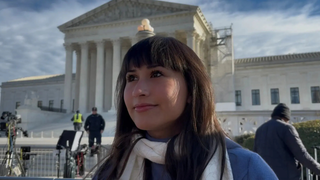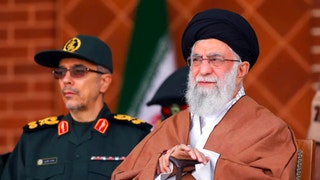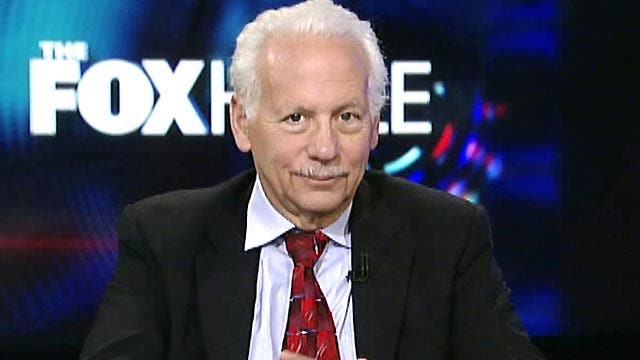The Foxhole: How have US-Russia relations gone so wrong?
Author Ken Adelman takes a look back at the twilight of the Cold War struggle in 'Reagan at Reykjavik'
Arms control negotiations might not immediately suggest themselves as the stuff of Hollywood drama, but Michael Douglas begs to differ.
According to Ken Adelman, the former director of the U.S. Arms Control and Disarmament Agency and author of Reagan at Reykjavik: Forty-Eight Hours That Ended the Cold War (Broadside Books), the Academy Award-winning actor is “all signed up” to play President Reagan – with fellow Oscar winner Christoph Waltz set to portray the Soviet leader, Mikhail Gorbachev – in a Ridley Scott-produced big-screen treatment of the two leaders’ famous arms control summit in Iceland in October 1986. The film will be based on Adelman’s book.
Adelman was freshly turned forty, one of the younger men in the room, when he accompanied the U.S. delegation to the weekend-long summit at Hofdi House in the Icelandic capital. The white, dual-façade villa, situated on a desolate grassy plain, had previously hosted the Queen of England, Sir Winston Churchill and Marlene Dietrich, among other notables, and was said by some to be haunted. Now, twenty-seven years later, Adelman has made skillful use of archival documents and other evidence to reconstruct the nuclear talks between the American and Soviet heads of state, in a book that is at once a hybrid of memoir and historical scholarship.
Among the declassified materials Adelman was able to access were the previously unpublished minutes taken by the American and Soviet note-takers who were present for the ten-and-a-half hours of intensive – and often contentious – one-on-one discussions held between Reagan, the veteran anti-communist who had branded the Soviet Union an “evil empire,” and Gorbachev, the architect of glasnost whose highest mission was to save the Soviet empire from collapse.
In reviewing the documents, Adelman was able to discern subtle differences in the official accounts of the Reagan-Gorbachev sessions produced by the respective note-takers for each side.
“The Soviet note-taker leaves out some things,” Adelman said in a recent visit to The Foxhole. “For example, at times, Gorbachev gets very nasty towards Reagan….It’s partly for what Reagan says, but it’s mainly for the style that Ronald Reagan has, which is not answering questions directly but telling a story. And he told some stories several times. In fact, Gorbachev at one point erupts and says: ‘You’ve told me that story ten times already!’ And the fact is he didn’t tell him ten times; he told him five times – but it’s still a lot of times [laughs]….And so he got mad. When Gorbachev gets a little nasty, the Russian note-taker doesn’t put it in his notes. And the American note-taker does.”
Adelman argues that while Reykjavik was widely deemed a failure in the immediate aftermath of the summit, the talks led directly to an even farther-reaching nuclear accord the following year and ultimately to the fall of Soviet-style communism in Europe. Along the way, Adelman also offers his views on Richard Nixon and Henry Kissinger, who exhibited very different approaches to arms control and the Soviet Union, and the role that personalities can play in the conduct of diplomacy.









































